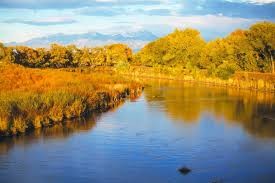Goebel to discuss H2O

ALAMOSA — There is a long history concerning water in the San Luis Valley — groundwater specifically.
Plenty enough to have someone certain about what water land one once had. Challenges await in figuring out how much water a person, a neighbor or someone across the Valley will have to work with in the years upcoming.
Conflicts have brewed concerning the Valley’s water. There has been a lot of effort, several meetings, compromises and grudges, which have caused fatigue. Yet the conflicts keep popping up. After all of the effort, the conflicts among water users keep arising. There are no silver bullets to conflict. But there are alternate ways of engaging conflict, so it does not become destructive.
One such way that the Mosca-Hooper Soil & Water Conservation District is introducing to our SLV water community is through consensus process. First, what consensus process is not: this is not a form of mediation, nor a type of arbitration. The goal of consensus process is 100% agreement to do the right thing — right for all involved. At first instance this may seem absurd. But this is the very outcome that many other agricultural communities who learn and work with Consensus Process have experienced, resolving over time very complex issues and long-standing conflicts involving water, land and people.
Jeff Goebel, a professional trainer in consensus process who will be leading the workshop on Jan. 9, has worked with many farm and ranch groups across the western United States, and internationally, over the past 30 years in facilitating the learning of this method. The work Goebel develops through consensus process is to facilitate active and productive discussion, so the solutions to the conflict at hand — in our Valley’s case is how to bring its groundwater use to sustainable levels — can be realized from the wisdom of the people most affected. And that includes farmers, ranchers, bankers, tractor and fertilizer dealers, school and hospital staff, parts suppliers and all whose lives will be impacted by the success or failure of water management efforts in this Valley.
During December in preparation for the Jan. 9 process, Goebel utilized components of consensus process to conduct interviews with 13 individuals from the SLV, gathering perspectives to inform the scope of the conflict involving groundwater in the community. But there are many more points of view to be considered, most importantly from community members.
The organization hopes see as many people as possible at the workshop, to participate and gauge if and how consensus process could be of use in resolving water conflicts and finding ways of making the best imagined outcomes possible.
Mosca-Hooper Soil & Water Conservation District is grateful to the Colorado State Conservation Board for matching grant funding to support this workshop, which is part of the Aquifer Recovery and the Future of Agriculture in the SLV Field Soil Observations; Fungal Rich Compost Project and the Rio Grande Water Conservation District for the use of their meeting room on Jan. 9.
Mosca-Hooper Soil & Water Conservation District works to address the concerns of landowners regarding soil health, aquifer recovery, and watershed function — all of which are interconnected - and to provide conservation resources to the district’s landowners.
Report courtesy of Robin Cope, District Manager, Mosca-Hooper Conservation District, San Luis Valley, Colo., 101 S. Craft Drive, Alamosa, Colo., 81101



